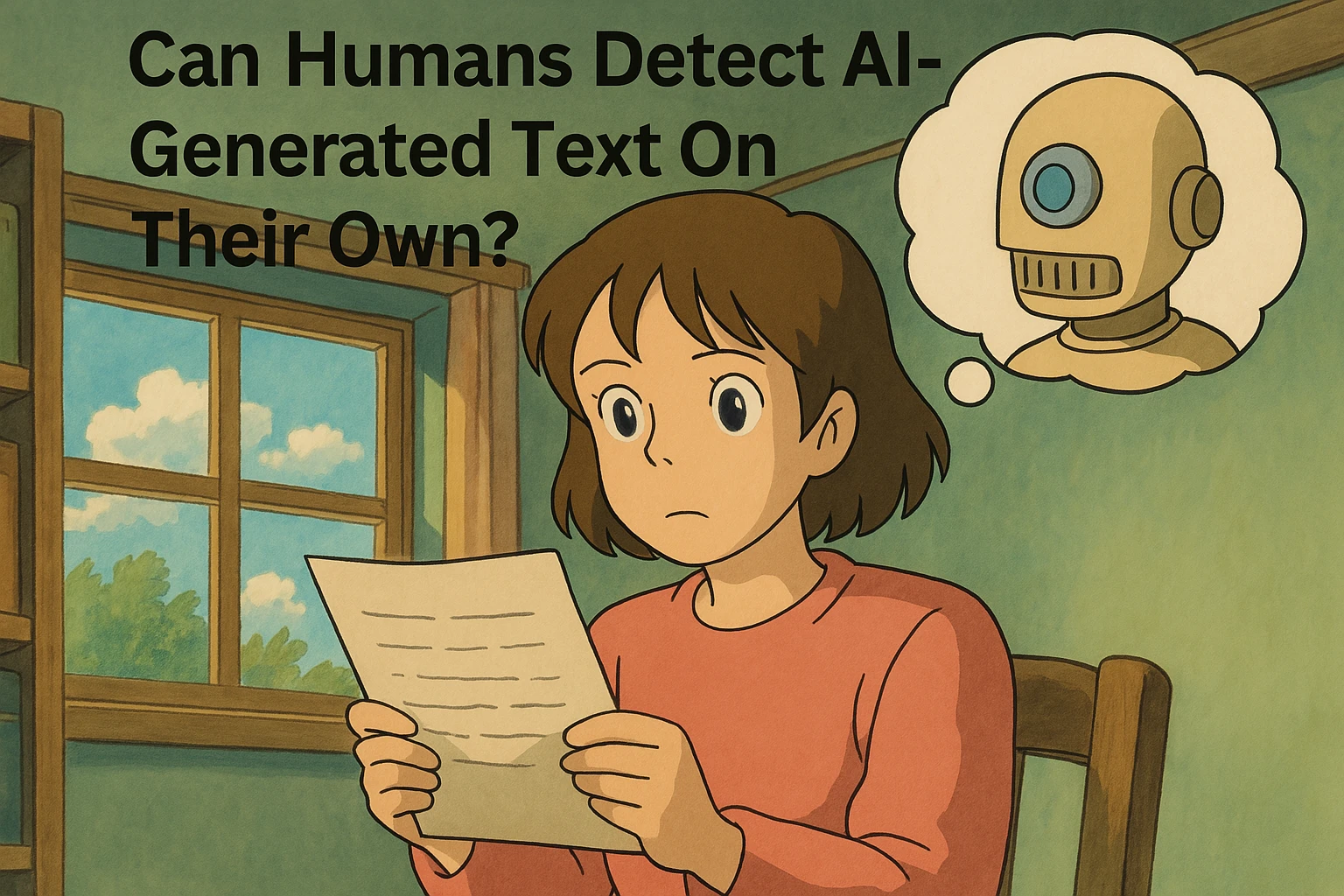As we all know it there are a lot of people who claim they can easily sniff out AI text just by reading it. However, is it really that easy? The short answer is NO. The longer answer is the devil lies in the details. Keep reading to know more about it.
Why it’s so difficult for us to detect AI-generated text?
The simple answer is that these AI tools (like o1, Gemini 2.5 Pro, Claude 3.7 Sonnet, etc.) are not some random algorithm, they are huge language models trained extensively on internet data that was mostly written by humans. Hence, if they sound so human-like, we shouldn’t be surprised. Because that is exactly what they are trained to do: generate text that feels natural to humans.
Some eye-opening statistics
- One study found that teachers were only 45% accurate in spotting AI-generated student essays.
- Another Turing test with GPT-4 found that participants mistook AI text for human writing 54% of the time.
- In one research, college instructors correctly identified AI content just 70% of the time, which still means 30% slip under the radar.
It is very hard for humans to detect AI-generated text because if you really think about it you would realize that AI is trained on vast amounts of human writing. So, the style, tone, or even the vocabulary might overlap a lot with actual human text.
On that note, I also want to say that even AI detectors don’t do their job good enough either. Some of them trigger false-positives, while others randomly pass AI text as human-written. So, neither purely manual detection nor automated detection emerges victorious here.
One last thing that I would like to point out to is that today's LLMs pass Turing test with flying colors. You don't hear much about Turing test because many pioneers shift the goals for Turing test. If Alan Turing was alive today, he would surely passed current generation LLMs (especially the "thinking" ones).
What about AI detectors?
AI detectors can be helpful but they do produce errors. They basically try to analyze text for patterns, unusual word usage, or weird phrase structures. But even that can be fooled by small punctuation tricks or paraphrasing it carefully. People often rely too much on them and forget to actually read or critically assess the content. This is illustrated in many stories online where entirely human-written text got flagged by some random AI detector.
So can we do anything about it?
Here are a few things you could do if it is super important to know:
- Combine a detection tool with your own judgement. Do not rely on a single method.
- Check references or citations. AI might fabricate references that do not exist.
- Look for consistent style or odd patterns—though this might fail if the AI is well-tuned.
- Always keep in mind that neither humans nor AI can guarantee 100% accurate detection.
Frequently Asked Questions (FAQs)
Q1. Can humans absolutely detect AI text by just reading it?
No, not absolutely. Studies show that we often guess wrong around half the time.
Q2. Do experts do better than newcomers?
Sometimes, but not by a big margin. Some experienced teachers missed AI text more than 50% of the time.
Q3. Aren’t AI detectors the perfect solution?
No, they can mislabel text frequently. You can use them for a quick check but they’re not error-free.
Q4. What is the accuracy rate of humans vs AI detectors?
Humans can be around 45% to 70% accurate depending on the context, whereas detectors often have inconsistent results.
Q5. Is it true that changing a few punctuations help bypass detectors?
Yes, ironically even minor changes can fool some detectors. That’s why they are not foolproof.
The Bottom Line
As we all know it people feel confident they can spot AI writing. But the statistics say otherwise - too often they guess it wrong. This is because AI models are designed to mimic natural language used by real people. Plus, AI detectors themselves are far from perfect. If authenticity is super important for your situation, a balanced approach is essential. Use AI detection tools, but also rely on thorough human review, checking references, style consistency, and more. Don’t put your full trust in one method or the other, as both can get it wrong.



